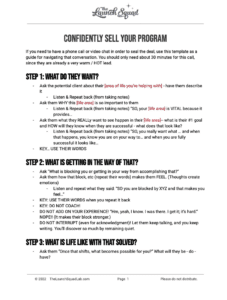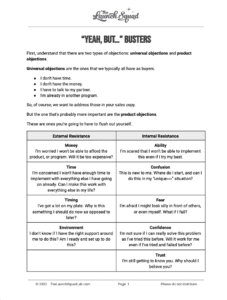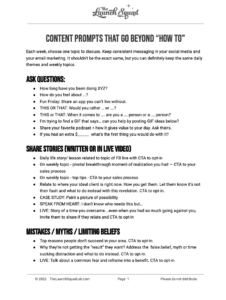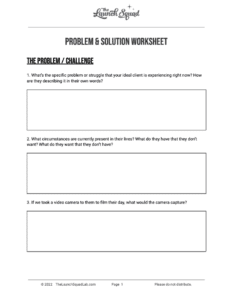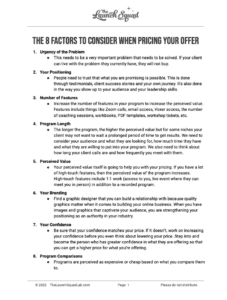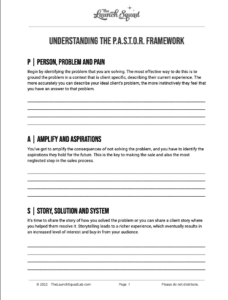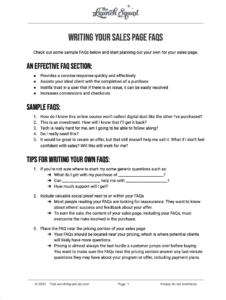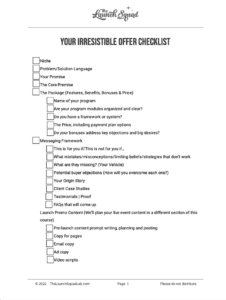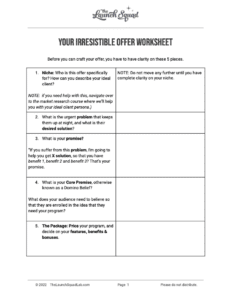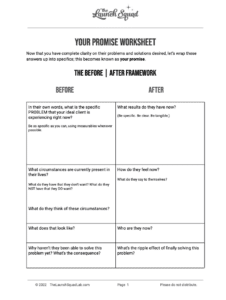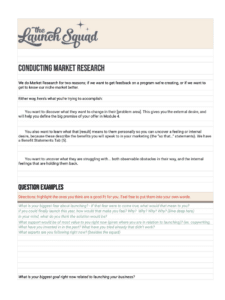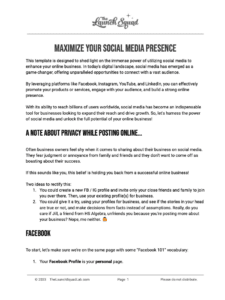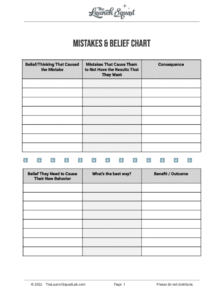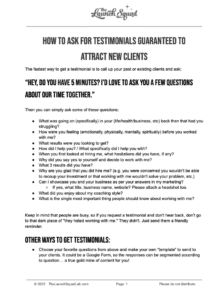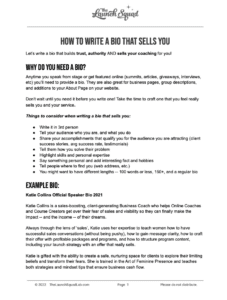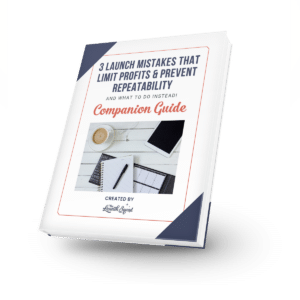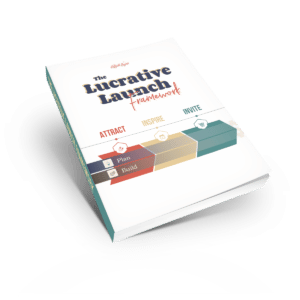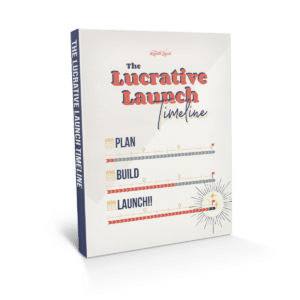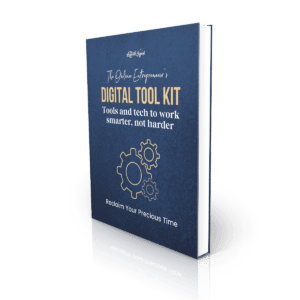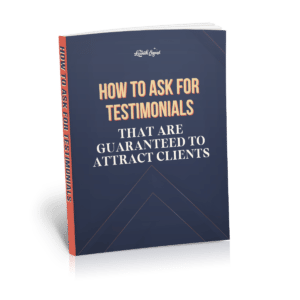Let’s talk about ways to either raise your existing offer or add a new high-ticket offer and what that means. what should you do with your low-ticket offer when you create a new, high-ticket offer?
Jeffrey: Welcome to the light in your launch podcast today, we're talking about the very first and most important sale you need to make in your business. Stay tuned.
Announcer: Hey, we're the launch squad and this is the light near launch podcast. We teach coaches and course creators how to lighten their launches. We're bringing you all of the tips and strategies to take your lunch from intimidating to money making. In this podcast, we talk about everything, the sales strategy, mindset, technical and spiritual aspects of running your best launch ever. So if you're feeling overwhelmed and unsure of the next right step, we're here to bring clarity, confidence, and excitement into your next launch. This is the lightening, your launch podcast.
Jeffrey: Welcome back to the show. I'm here with Katie Collins. And today we're talking about the single most important sale you need to make Katie. What is this first sale you need to make in your business?
Katie: You have to sell yourself on offering. Yeah. Like you really, you have to, that was like one of my first, um, sales techniques I learned that really made sense to me was the first close you have to make is to close yourself. Meaning if you don't believe in the value you provide or the price point you've set, or the promises that you're making in your marketing, you will not sell it. It is an uphill battle. And that is what's disappointing. So we've got to get you on, you know, aligned with it first.
Jeffrey: Yeah. So on what we're talking about is alignment that alignment with, I guess, believing, believing, uh, in your product, in your service, believing what you do believing about what you do. Is that what
Katie: Definitely. And what I find with a lot of my clients is the marketing promises are what get them stuck right there. Can I really promise this? Right? Like, cause you see other people say, Oh, you're going to double or triple your income. How on earth can you promise that? Right. Right. Um, but it's understanding that if they do what you're telling them to do, right. You're teaching them a strategy and you're teaching them the strategy that helped you double your income or that helped you triple your income. Right. So we got to watch the marketing words there, but is that true? Did you double your income? Did you triple your sales? If that's true, then you can say it. Right. But instead of promising that it's going to happen for them, you talk about who it did happen for, right? Yeah. Um, but yeah, it's just trusting. I remember,
Jeffrey: Um, back in college, this doesn't have to do as selling, but this, it kind of does. Um, back in college, I, in college, I went to, uh, went to college. I went to college for 3d motion graphics and I wanted to make movies and stuff like that. And um, two of the competing 3d programs were, uh, Maya and LightWave and I, I liked LightWave and my friends liked Maya and they were totally completely different interfaces, completely different softwares. They both did the same thing. Right. But it was interesting how I, I couldn't tell somebody to go try out Maya, but I could tell them to try out LightWave. And it was just that, that coming from a position of this works for me, this is why I love it. And I'm so inline with this product. Like that's kind of like the energy we're approaching because people would would say, you know, I would just go on and on about like how cool it was. And they're like, man, you should sell this stuff. And that's kind of where the story came from, but yeah, but you know, like if you're not aligned and you don't believe in what you have to offer, then that's going to come through, it's going to leave an impression on the buyer.
Katie: Absolutely. And, and you know, here's another one that doesn't have to do with sales, but, um, you know, people are looking for recommendations all the time, right? So I just saw a Facebook friend post, you know, Lulu, I just hired a social media manager, you know, quantum leap coming my way. And as usual, someone commented and said, give me their number. And the person wrote back and said, I will, after a few months, you know, I hired the person from, you know, wherever Upwork. And it really made an impression on me because it's true. It's like, I'm not going to promote this person that I just met. I don't know yet. Right. So I'm not aligned with referring you to this person. That's a stranger to me until they prove themselves. And that is true for your program. You have to be able to take people through it and get some results before you put it on this big, large scale of launching it. Right? Like you have to do a smaller launch, take people through it, get the testimonials, know the value, right. And that creates that alignment for you where you can trust. Not only did it work for me, but now it's worked with my five beta testers. You know, you don't even have to do a beta price if you don't want to. Right. But you have to take people through it and get the results so that you can market it as this. Wasn't a lucky thing that happened to me. This was a replicable occurrence. Right?
Jeffrey: Yeah. And I think this, this idea of selling yourself on the value that you can deliver, I think that has a kind of a twofold result. One, it brings the confidence and I guess they're kind of connected, but it brings the confidence in your speech and how you talk about it. But it also attracts those who don't question the price. Um, I remember, you know, when I started out, uh, building websites and stuff like that, uh, I would attract some deal seekers and they were always the ones who wanted to kind of kick the tires first. They wanted to say, well, you know, that's really expensive. Could I, is there any way to get the price down? And you know, I, I kind of sometimes early on, I would say, yeah, yeah, okay. We can cut some corners here. And there's some things we can get away with here.
Jeffrey: And, and those projects always tended to drag on the longest. And they would always ask for more, they would always be looking for this awesome end result website while only wanting to pay for a template or something. Right. And then on the flip side of that, you know, after a while you kind of get this established value and then after a while, it was like, you know what? This is, this is how much it's worth. And this is the value of it. And that started to attract those people who are like, Oh, that's a great price. Cool. Let's keep going. Let's that's great. And the ones who don't blink when you give them the estimate, right. Those were the projects that always went really quick. They L they were satisfied with it. They love the end result and they never questioned it. They were always happy with what they got. And those are also the people who took that website and ran with it and grew their businesses. Right. And then on the flip side of that, the ones who were looking for a deal where like, ah, they got their website and they just kind of sat on it.
Katie: Yup. Yup. I experienced the same thing in my coaching business. Um, you know, I remember a couple of years ago, um, I, I think I had a client cancellation and I was trying to replace, you know, this, this income that I was counting on. And I ended up bringing in three people into a small group and charge them a third of the price. So together they paid that. And it was just, it was like triple the work, because it was three people that I was, you know, individually coaching, um, in this hour of time together. And then I just would compare it to the person that hired me for the year, paid me in full at my regular rate. And it was night and day, um, you know, for the way they, me and the way like the results they got in their business, it was just night and day.
Katie: Um, and, and I quickly realized too, you know, I am never going to go that low again because I attracted to me people that just weren't operating at the level that I operate at. And so, you know, there was no accountability. They weren't doing the homework. They were, there were not showing up to the calls, right? Like where, when someone's investing triple the rate that this person invested at, you can be darn sure they're showing up right there. They're gonna get their money's worth so to speak. And they're just committed. They're more committed. Um, but yeah, they pay attention. Right? Exactly. Yeah, exactly. And I just learned early on the discounting of my own rates. Absolutely not because I, I just got to this place where I would maybe resent people cause I was making less, you know, and they were getting like so much value for me.
Katie: I was feeling used. And at the end of the day, I could either blame them for using me, or I could sort of take the responsibility for myself that I opened that door. Right. And recently I had a sales conversation and it was a husband wife team and the husband was trying to negotiate. And it, I was very clear because I was selling on behalf of someone else. Um, there was no negotiation. And I finally said, this isn't a used car, lot. This, this industry doesn't negotiate. This is the program. This is the price. And I'm not, I can't move on the price I threw in like an extra bonus or something. Right. But he, once he realized that it was okay, okay, I hear you. Right. Like now what can you throw in as a, as a bonus? You know, I'm happy to bonus things, but I'm not going to discount it. But in that case, I think if, if we had discounted it it's like you said, then it's every time we were going to make another offer, it's asking for another discount, what's the best you can do. Right? Like you can ask a hotel that, but you can't ask a service provider that, or you shouldn't be
Jeffrey: Right. Yeah. And it just kind of opens that door. It starts the relationship off on a, you know, in a haggling manner where it's like, Oh, well you say this, I'll say this. And then you say this and then, okay, well, so everything that every price or offer that comes up, okay, well, that's your first offer. I'm going to counter with this. That's not the relationship you want with your
Katie: Exactly. And in his industry, that is what he does. And that's what he said. He was like, Katie, I do this all day every day. And I was like, I respect that. I respect a good negotiation, but this isn't a place where we can negotiate. Right, right. End of story. So it does take the, um, you know, the boundaries that you have to have within yourself where you feel. And at this time when I was, and still to this day, um, selling that particular program, I did believe so strongly in the value and the price point that it was easy for me to say, absolutely not. Right. So that's what we're talking about here is being so aligned that you're very clear. If somebody can't see the value, you either didn't do a good job describing the value, or they're just not ready to invest at that level. We don't need to make them wrong for it, but stop wasting your time talking to somebody like that.
Jeffrey: Right. Their pain may not be, uh, enough for them to, to, to want it that bad or
Katie: Yup. Yup. Or they're just unwilling to invest at that level, like unwilling. Right. So, okay. I'm done.
Jeffrey: And that, that brings up a good point about feeling how you feel about your own pricing versus, you know, what's just outside your comfort zone. And, and sometimes when we don't feel confident with our, our price and our value, that's where we allow that negotiation. Oh yeah. Well, I'll let it slide for you.
Katie: Yeah. Yup. Yup. And then they trample all over you. Right. Because you just lost your leadership every time, the minute you discount, you lost your leadership and they trample on you. Right.
Jeffrey: Yeah. Now this here's a big point you might feel or think you're doing a favor for somebody, but you're actually doing them a disservice because now they're now th the, the dynamic is different. The dynamic just changes. Right. And I think it does have to do with that leadership and that respect that happens when you're like, this is the value, this is the price you're either on board or not.
Katie: Yeah. Yeah. So, you know, quick story that, um, I was thinking of. Um, so back in the day when I first got my coaching certification, I, um, went under another coaches kind of umbrella, and we were selling her product. And, you know, this was back in the day. Um, some things were digital, but in her business, they weren't, and it did feel a little outdated to be honest, even when I went there, but it was a kit. And so somebody would get, you know, someone that signed up for the program with me would get a kit delivered in the mail. And it was this nice, fancy leather binder with like six or eight CDs, not even a DVD CDs, and then back, and then a workbook, um, you know, with the transcripts of the CDs and then some questions or whatever. And so that was the program itself, you know, if you will, that would, that was the, the features.
Katie: And then, and then CA coming with this kit came my coaching and we were guided to offer this program at a suggested price. And they gave us permission to price it at whatever we wanted. All we had to do was pay for the kit. And so say the kit was $300. I could sell that program for $400, or I could sell it for $4,000. But the suggested rate was $2,000 for a six month program. And at the time I was an underpaid teacher and $2,000, like even to sell one of those per month where I would take home, you know, 1700 of that to $2,000 blew my mind. Like I was so thrilled that that was even possible. So I took her suggested price with my own money mindset, and I was nervous to sell it for $2,000. And I barely sold it for 2000.
Katie: In fact, by the end of that year or two years that I was with them, I had only earned 2,500 in return. So I'll let you do the math on that. Clearly I didn't even sell three at a full price rate, right. So that's me in the same room at the same training is a guy out of New York city who obviously had a better, um, belief in himself, right? Like, uh, just believed in his value more than I believed in my value, same program, same kit, same CDs, same workbook, same six month curriculum. He said, I'm going to sell that for $10,000. And he took it back to New York city and he called 10 high power executives that would have laughed at a $2,000 price tag. And he offered the same exact program to them for $10,000. He sold 10 of them and he made six figures in his first year of coaching and I made $2,500 same program. So that's why I love the story. It's literally apples to apples. Right, right. But two different people with two different alignments around price, the understanding of money, the understanding of our value of our time of our coaching, and then clearly drastically different results because of that. Um, yeah.
Jeffrey: Huge. And it's really, like, you can really point at that story and say, what was the only thing different as it was his point of attraction, his mindset towards what he was offering and to whom and to whom big point big point. True. Yeah, yeah. Yeah.
Katie: Um, so, and I see a lot of marketers out there teaching people how to do a fluent marketing. And I'm like, that's a real niche because a fluent people are willing to invest at a higher level. They're usually a joy to work with. They pay you in full, they get great results, yada yada, you know, and you end up, you know, selling this for $10,000 instead of 2,500 totally different experience.
Jeffrey: Yeah. And that kind of puts that kind of puts the spotlight on, you know, Katie back then, what was, what was comfortable, what was a comfortable price to sell this thing? And then the other guy, what was a comfortable price for him? Right. So two, two totally different levels. And I think, you know, if, you know, going back with you, if you were to coach yourself back then, right, you would have probably said, well, let's extend outside of your comfort zone. You've got to push that boundary and just a little bit, cause you know, that success that's going to come. Right. And this is true for almost everything we do. Our success is just outside of our comfort zone.
Katie: Absolutely. And it's funny because that $2,000 price point for me was out of my comfort zone. Right. It was like, I wasn't bringing much more than that. Like that's what I was bringing home per month. Right. Like maybe 3000 a month was what was coming into my bank account from teaching after all my taxes and insurance and stuff. Um, so that was a big, a big thing. And, and so it's just interesting, but, um, I'm glad for that experience because I really did get to see the people that I worked with. And I worked with some lovely people during that time. And I did give it for free or for low cost because I needed to build up my own belief in my own value. And I'm to this day, still friends with my very first customer and, and I gave it to her for $500.
Katie: So remember the kit cost me 300. So I made $200 to coach her for six months. But the experience made me go through the program, put it into my own words, learn how to coach it. Right. She ended up re-upping with me. So we worked together for a whole year and, and we're still friends to this day. Um, and so it's not, I'm not here to say you have to, you know, charge the higher rate. I'm here to say, get aligned with your pricing and keep bumping it up. So I wouldn't be where I am if I stayed at that $500 for a six month program level, but I just simply had to start there. And I don't know this guy at all. I just know his story. And so maybe that wasn't day one for him, like it was for me. Right. So it's, it is about what feels good.
Katie: And then just pushing yourself a little bit more. So I, um, I used to coach for another coaching company and I would bring out like my sassy smile. And so when my client I'd say, how much do you want to charge to my client? Maybe they'd say a hundred dollars an hour. Right. And they'd be shrugging their shoulders and practically questioning their coach. Right. And then I would, I would put out a big smile and be like, what if it were one 50, right. If they told me 200, I would say, what if it were two 50? If they said 500, I'd be like, what if it were six 50? I always pushed a little further because what I'm looking for is for them to put their stake in the ground and say, no, I feel good at the hundred. Okay, great. Right. Like as a coach, I'm pushing like, are you gonna fall over or are you gonna stand so firmly in the decision that you made?
Katie: Or, or am I calling you out on the fact that you can stretch a little bit? Right. And so it was great. It was like 50% of the time received with, okay. I love your sassiness. Yes. I'll bump it to one 50. Awesome. Right. And 50% of the time it was no I'm feeling really good. I've meditated on it. Dah, dah, dah. I did a full moon prayer. Right? Like they were solid and I wasn't going to serve them as a coach to push that. Right. I was great. I was glad they were aligned, lined with that. So anytime someone asks me and I just got asked this yesterday, how do I price my consultation services? I was like, literally, you could price it at 50 bucks or 50,000.
Katie: And you're going to attract a different person. That's going to say yes to the 50 bucks versus the 50,000, you know? Um, yeah. So it is literally up to you. Yeah. And it's a lot of mindset work to get there and I don't believe you can truly get there alone. I think you have to have this conversation with mentors, not family members, not friends, not spouses who are not entrepreneurs. Please stop having pricing conversations with people that are not entrepreneurs ask someone in your industry. This is what I'm thinking, price wise, what's your feedback and, and get some pushback and find your solid stance in whatever you choose.
Jeffrey: My grandma said that sounded real expensive.
Katie: Exactly. Yup. Yup. Yup.
Jeffrey: Was there when you were, if you think back to, um, you know, that that initial program that you were, you were selling was how did you move on? What was, was there any thing that you did to, I guess, get more aligned with a higher offer and how did you move?
Katie: This is so funny. I literally had to leave that program completely. I did. I had to accept the fact that I invested $25,000 in the wrong company for me. I had to accept the fact that I only made back 10% of my investment and I had to be okay with moving on and investing again at another $15,000 to find my own voice and sell my own programs. And I can see why I chose that initial pathway because I was a former teacher and I loved the idea of someone else's curriculum. I remember telling myself, I can teach anything, just give me a book and I can teach from it. And I wasn't allowing myself the, I wasn't even valuing myself to say that I had something to say that was worth it. So that was the big thing for me was to say, I'm worth, like, what I have to say is also valuable.
Katie: It's not, you know, the only reason that this woman that I learned from was more valuable than me is because she believed it. And so did I? Yeah. Yeah. And the minute I realized I'm no different than her. And in the thing that I, the reason I know people that have been very successful selling her programs, it's not her program. Um, it was that I personally wasn't aligned with the teaching. Like she used a lot of Bible references for example. And I don't use the Bible for inspiration in my life at this time that wasn't me. And that wasn't my friends. I was in my early thirties. And it was like, I'm not going to, my friends are not going to like this kit that tells them stories from the Bible. It just wasn't. And if I had done my due diligence and understood a little bit more about what she stood for, I wouldn't have signed up in the first place. Right. So lots of green mistakes, but I really value that time. And I'm not angry that I spent that much money and had that whole experience. Cause I wouldn't be here today. If I hadn't said that initial yes. And joined the coaching world and got to see what everyone was doing, how much money they were making and what was possible for Me. So yeah. But
Katie: Yeah, essentially had to say, Katie Collins has something to say and it's valuable.
Jeffrey: Amen. And that's why we're a good team.
Katie: And that's why we're a good team. Yeah. So we've got so much coming in. Um, you know, w it's so fun because Jeffrey and I have been chatting, we've been chatting like this for like 18 months probably. Right. But then when we started recording it, yeah. We're like, darn it. Why didn't we hit right. All those months ago. Um, you know, then we, we came together and started this agency with a few of our BFFs. Um, and, and so we've been behind the scenes and now we're coming out, right. January, 2021 it's like dumped up here is the launch squad. So we have so many things coming your way. One of the things we wanted to mention just from the get go, we have an amazing free gift right now. It's actually a bundle. There are tons of amazing free resources that could stand on their own, but we bundled them together.
Katie: Why? Because we are an agency of five and we've got five experts that can teach you things. And we decided to bundle up our expertise so that you can get kind of a taste of, of all of us. So one of the things in there is about affirmations pricing affirmations because in my sales expertise and really helping people get out of their comfort zone, stretching themselves a little bit, you have to believe right. That it's possible. And part of how we do that is to say affirmations that are more with who we want to become and what we want to believe instead of the, um, thoughts that we have right now that are keeping us back. And I've found for myself, the affirmations were huge. And so we wanted to record our own. So that is part of the free gift. Not only do you get a printout of the affirmations that you can put on your wall, but we also have recorded them in case there's somebody that likes to go for a walk and tune into some affirmation. It's like 15 minutes long. And that's not all that's in that free gift, but I'll just let you go discover that for yourself. Um, so any way to grab that free gift, you would just go to the launch squad, lab.com forward slash free gift. And you can check out all of our podcast episodes and you can see what our faces look like and what we're all about.
Jeffrey: Yeah. All right. Let's, let's put a bow on this and uh, I'd like to thank our listeners for tuning in. And if you enjoyed this episode, please leave us a five-star review and hit the subscribe button on iTunes or wherever you consume this information. Um, you can also check out the show notes thelaunchsquadlab.com/episode6 and special announcement. If you are tuning into this in January of 2021, we'd love to invite you to join us in our free live event, coming up, create a high ticket offer that sells head over to thelaunchsquadlab.com/highticketoffer to get registered. All right, we will see you next time. Bye.
Announcer: Hey, thanks for listening. If you'd like to have clarity, confidence, and excitement around your next month, join us in the line, your launch Facebook group today thelaunchlab.com/Facebook. We also invite you to download our free gifts, the light near lunch starter kit, the free guide to creating an irresistible offer pricing it right overcoming tech barriers and tapping into the energy you need for success. Get it now thelaunchspotlab.com/freegift [inaudible].
Be the first to know
Enter your name and email and we'll let you know when new episodes release.
About the Show
The Lighten Your Launch Podcast is for Coaches and Course Creators who want a lighter online launch experience. Maybe you’ve done a few launches already, and feel exhausted just thinking about it! Or, it’s been one of your goals, but you don’t know where to start.
Tune in to learn from our team of experts, The Launch Squad, who aren’t afraid to dig into all aspects of launching: sales, strategy, technology, mindset, funnels, and even a bit of woo to get you through the toughest times. Let’s put a stop to perfectionism and procrastination, and finally take your launch from intimidating to money-making!

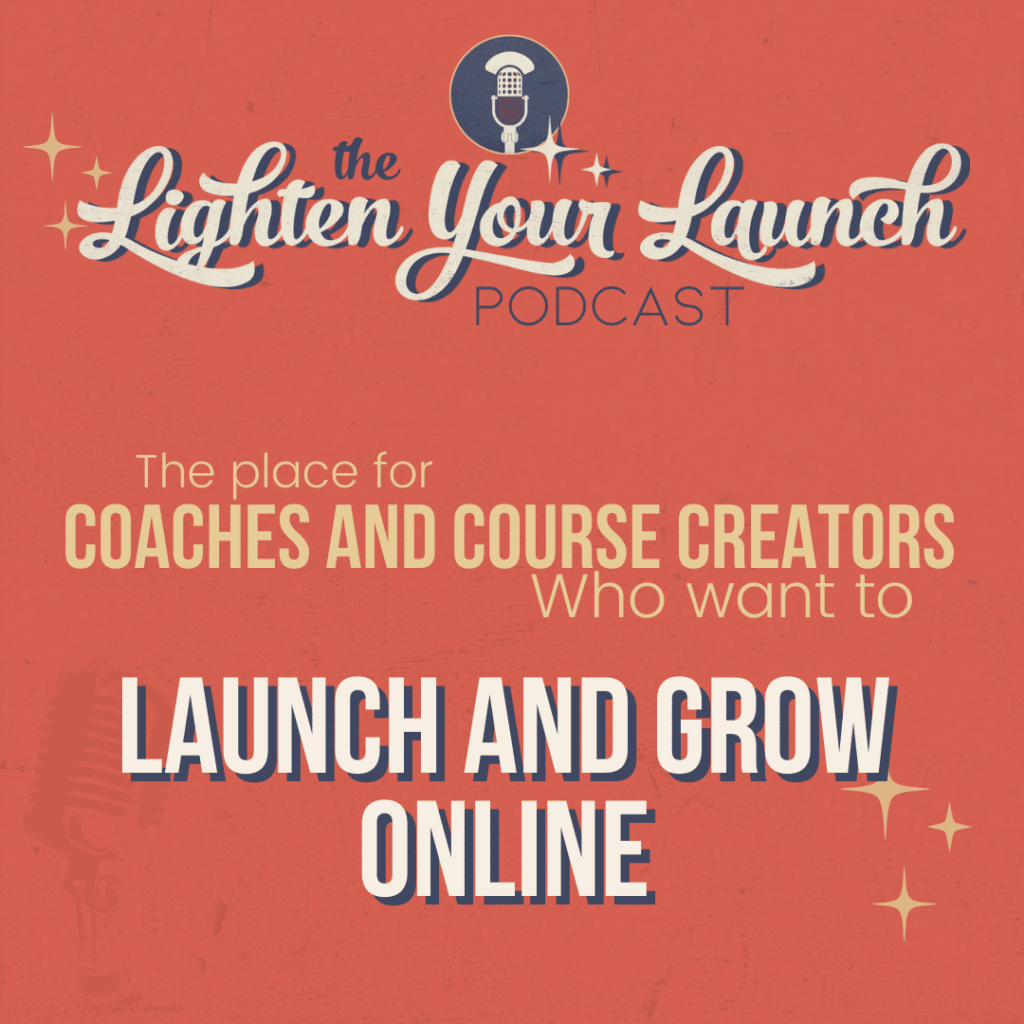
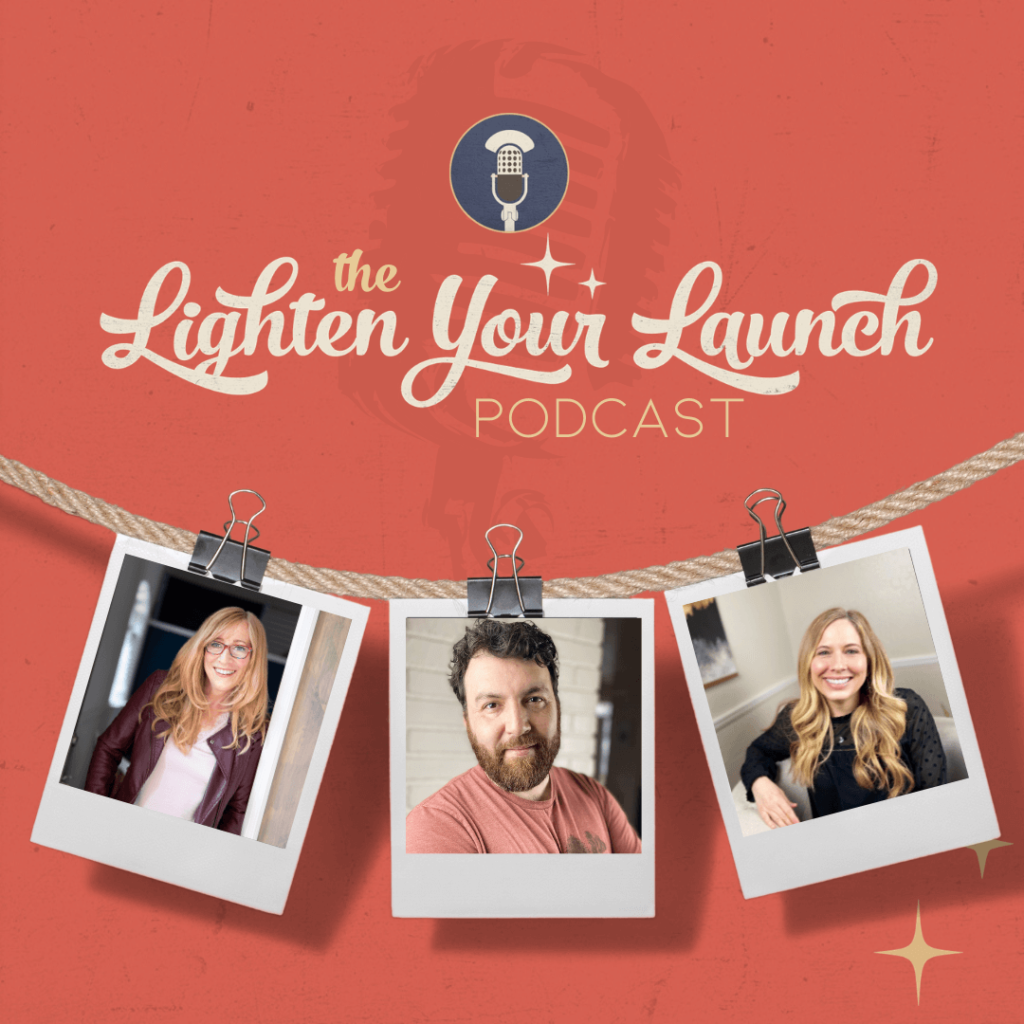


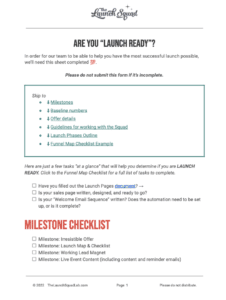
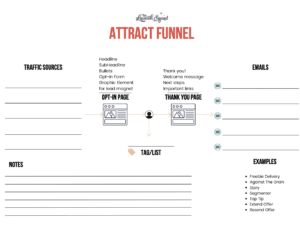
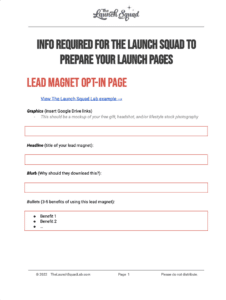
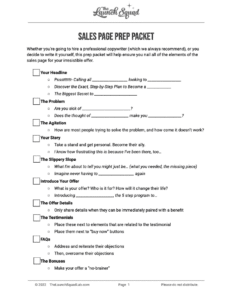
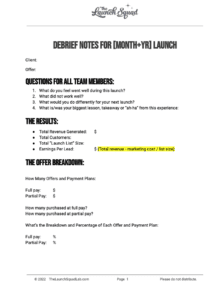
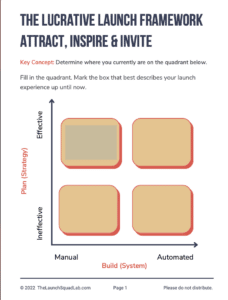
![Marketing Launch Calendar [TEMPLATE]](https://thelaunchsquadlab.com/wp-content/uploads/2023/05/Marketing-Launch-Calendar-TEMPLATE-300x260.png)
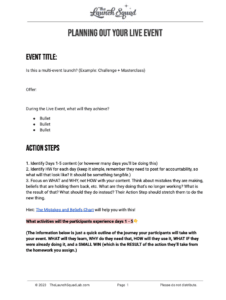
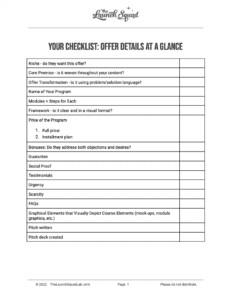
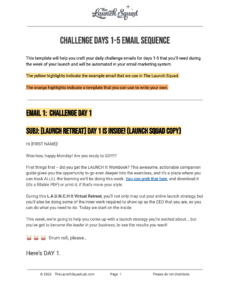
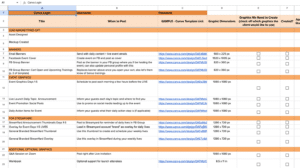
![[Updated] Email Templates for Launch](https://thelaunchsquadlab.com/wp-content/uploads/2023/05/Updated-Email-Templates-for-Launch-223x300.png)
![[REVISED] LS Pitch Script](https://thelaunchsquadlab.com/wp-content/uploads/2023/05/REVISED-LS-Pitch-Script-2023-226x300.png)

